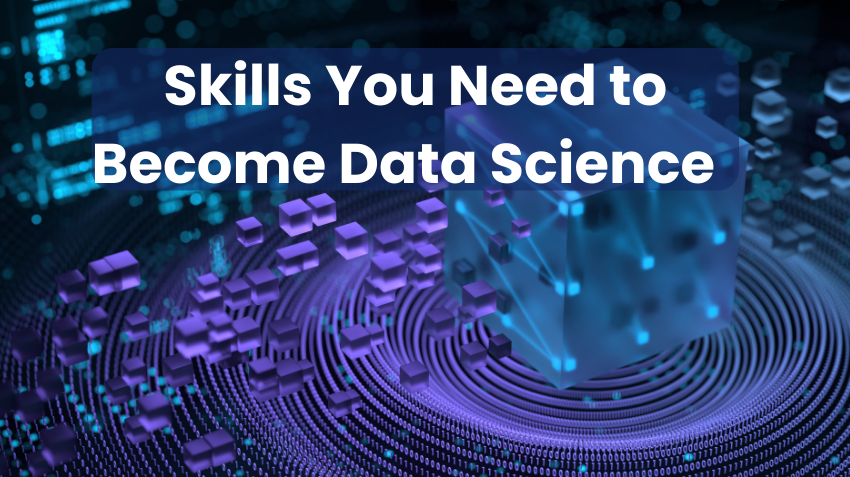- Essential Skills: Understand the core technical, analytical, and business skills required to succeed as a data scientist.
- HR Perspective: Learn how HR professionals can identify and nurture data science talent within their organizations.
- Educational Pathways: Discover the importance of certifications and continuous learning in data science.
- Data Science Trends in 2024: Stay updated on the latest field trends, including generative AI, AutoML, and data democratization.
Imagine if data was like a giant, tangled ball of yarn and data scientists were the clever cats trying to make sense of everything. In today’s world, these yarn-savvy pros are in high demand, with companies like Google and Amazon on the lookout for the brightest minds who can unravel the chaos and spin it into something spectacular. So, what makes a data scientist the cat’s pajama? And how can HR folks spot and nurture these data wizards in their teams? Let’s explore the world of data science and discover what it takes to become a genuine data hero!
Key Takeaways:
1. The Essential Technical Skills for Data Scientists
At the core of data science lies a robust set of non-negotiable technical skills for anyone looking to excel in this field. According to a 2023 survey by Fortray, 89% of successful data scientists highlighted programming as a critical skill for their role.
- Programming Languages: Mastery of programming languages like Python and R is foundational. These languages are indispensable for tasks ranging from data manipulation to the deployment of machine learning models.
- Data Management: Understanding SQL and data warehousing concepts is key. A data scientist must be adept at querying large datasets, as 78% of professionals in a Fortray study reported using SQL daily.
- Statistical Analysis: Proficiency in statistics is crucial. Data scientists must be well-versed in concepts like hypothesis testing, regression analysis, and probability, which are essential for making data-driven decisions.
- Machine Learning: In a Fortray report, 72% of companies stated that machine learning skills are among the top data scientist requirements. Familiarity with algorithms, model tuning, and evaluation metrics is critical.
- Data Visualization: The ability to create clear and compelling visualizations using tools like Tableau, Power BI, or Matplotlib is vital. It’s not just about crunching numbers—communicating findings visually is equally important.
2. Analytical Skills: The Mindset of a Data Scientist
Beyond the technicalities, data science requires a unique mindset—one that combines creativity with rigorous analytical thinking.
- Critical Thinking: Data scientists must be able to analyze and interpret data critically. A Fortray HR report found that 85% of top-performing data scientists possess strong critical thinking skills, allowing them to derive meaningful insights from complex datasets.
- Problem-Solving Abilities: The journey of becoming a data scientist is rooted in problem-solving. It’s about tackling business challenges with innovative solutions, which 80% of HR leaders at Fortray identified as a critical skill for data science roles.
- Attention to Detail: Given the complexity of data sets and the precision required, attention to detail is paramount. A single error in data analysis can lead to incorrect conclusions, costing companies millions.
3. Business Acumen: Translating Data into Strategy
The technical expertise of a data scientist is only part of the equation. To be truly effective, they need to understand the business context in which they operate.
- Domain Knowledge: Data scientists must understand the industry they work in. Whether it’s finance, healthcare, or retail, knowing the industry’s forces at work enables them to ask the right questions and interpret data correctly.
- Communication Skills: It is crucial to translate complex data insights into actionable business strategies. According to Fortray’s HR insights, 70% of data scientists are now required to present their findings regularly to non-technical stakeholders.
- Collaboration: Data scientists often work in cross-functional teams, requiring collaboration with engineers, business analysts, and executives. Effective teamwork is essential for implementing data-driven strategies.
4. The Educational Pathway: Data Scientist Qualifications
While there's no one-size-fits-all educational pathway, specific qualifications can give candidates an edge.
- Certifications: Professional data science certifications, such as those offered by Fortray, can be a significant advantage. These certifications validate a candidate’s skills in machine learning, big data, and advanced analytics.
- Continuous Learning: The field of data science is rapidly evolving. Staying competitive requires keeping up with the latest trends through online courses, workshops, and industry conferences.
5. Getting Into Data Science: The Journey Begins
So, how does one become a data scientist? The path involves a combination of education, skill development, and practical experience.
- Start with the Basics: For those wondering, "How do I become a data scientist?" Start by learning fundamental skills like programming and statistics. Platforms like Fortray offer introductory courses designed to build a solid foundation.
- Gain Experience: Practical experience is invaluable. Participate in internships, hackathons, or open-source projects to apply your skills in real-world scenarios. According to a Fortray study, 75% of data scientists landed their first job by showcasing their work through a portfolio.
- Build a Portfolio: A portfolio of completed projects is essential for demonstrating your capabilities to potential employers. Highlight your ability to solve real-world problems using data science techniques.
- Network Actively: Engage with the data science community. Networking can provide valuable mentorship, job leads, and insights into industry trends. Fortray’s networking events have been instrumental in helping aspiring data scientists connect with industry leaders.
6. Is Becoming a Data Scientist Hard?
The path to becoming a data scientist is undoubtedly challenging, but the rewards are significant. The role requires a combination of technical expertise, analytical thinking, and business acumen. However, with the right guidance and resources, such as those provided by Fortray, the journey can be manageable.
In fact, data from Fortray indicates that 68% of their program graduates found the transition into data science roles to be challenging but ultimately rewarding, with many securing positions at top companies like Google and Microsoft.
Fortray’s Data Scientist Program: Your Gateway to Success
Fortray’s Data Scientist Program is tailored for individuals looking to break into this dynamic field. Whether you're just starting or looking to upskill, Fortray offers a comprehensive curriculum that covers everything from programming to machine learning. With real-world projects, mentorship, and career support, Fortray helps you build the skills required for a data scientist role and positions you for success in this competitive field.
Recent Data Science Trends in 2024
Importance of Measurement
The field of data science is constantly evolving, with new technologies, methodologies, and applications emerging at a rapid pace. As we move through 2024, several key trends are shaping the future of data science. Here’s a look at some of the most significant trends that are influencing the industry:
1. Rise of Generative AI and Large Language Models (LLMs)
One of the most impactful trends in 2024 is the rise of generative AI and large language models like GPT-4 and beyond. These models have transformed how data scientists approach natural language processing (NLP), enabling more sophisticated text generation, sentiment analysis, and conversational AI.
- Applications: From chatbots to automated content creation, generative AI is being integrated across industries. Data scientists leverage these models to improve customer interactions, personalize marketing, and generate code.
- Challenges: While powerful, LLMs require vast amounts of data and computational resources, raising concerns about accessibility and sustainability. Additionally, ethical considerations around bias and misinformation remain a focal point.
2. Automated Machine Learning (AutoML)
AutoML has gained significant traction as companies seek to democratize data science. AutoML platforms automate the end-to-end process of applying machine learning, from data preprocessing to model selection and hyperparameter tuning.
- Benefits: This trend makes data science more accessible to non-experts, allowing businesses to implement machine learning solutions without requiring deep technical expertise. For data scientists, more time can be spent on high-level problem-solving rather than routine tasks.
- Impact on Jobs: While AutoML streamlines workflows, it also shifts the focus for data scientists towards more complex, custom projects where human expertise is irreplaceable.
3. Increased Focus on Data Privacy and Ethics
With the growing use of data comes increased scrutiny on privacy and ethical practices. In 2024, data privacy regulations such as GDPR in Europe and CCPA in California are being enforced more strictly, influencing how companies handle data.
- Ethical AI: Data scientists are increasingly involved in ensuring that AI models are transparent, fair, and unbiased. There is a rising demand for AI ethics officers and frameworks that guide the responsible use of AI.
- Data Governance: Effective data governance practices are becoming essential. Companies are investing in tools and processes to ensure data integrity, security, and compliance with legal standards.
4. Edge Computing for Real-Time Data Processing
Edge computing is revolutionizing how data is processed, enabling real-time analytics that are closer to the source of data generation. This trend is particularly relevant for industries like healthcare, manufacturing, and autonomous vehicles, where immediate insights are critical.
- Advancements: The proliferation of IoT devices and 5G technology has accelerated the adoption of edge computing, allowing data to be processed locally rather than sent to centralized data centers.
- Use Cases: Real-time monitoring of medical devices, predictive manufacturing maintenance, and enhanced autonomous system performance are just a few examples of how edge computing is utilized.
5. Data Democratization and Citizen Data Scientists
Data democratization refers to making data and analytics accessible to a broader audience within an organization. In 2024, the rise of low-code and no-code platforms has empowered non-technical users to perform data analysis and build models.
- Citizen Data Scientists: These are business professionals who can perform basic data science tasks with intuitive tools. This trend reduces the burden on traditional data scientists and promotes a data-driven culture within organizations.
- Training and Upskilling: There is a growing need for training programs that enable employees to gain data literacy and analytical skills.
6. Hybrid and Multi-Cloud Strategies
As organizations scale their data operations, the use of hybrid and multi-cloud environments is becoming more common. Companies are leveraging multiple cloud providers to optimize costs, enhance flexibility, and ensure data redundancy.
- Data Integration: Managing and integrating data across different cloud platforms is a challenge that data scientists must navigate. Tools that facilitate seamless data movement and consistency across cloud environments are in high demand.
- Security Considerations: With data distributed across various platforms, ensuring robust security and compliance has become a top priority for data scientists and IT teams.
7. Interdisciplinary Collaboration
Data science is increasingly becoming an interdisciplinary field. In 2024, we see more collaboration between data scientists and experts in biology, social sciences, and economics to tackle complex problems.
- Cross-Disciplinary Teams: Bringing together diverse expertise enables innovative data analysis and problem-solving approaches. For example, collaborations between data scientists and medical professionals are advancing precision medicine and public health initiatives.
- Integrated Solutions: Data science is no longer siloed but integrated into broader business strategies, with data scientists playing a pivotal role in decision-making processes.
8. Sustainability and Green AI
As environmental concerns take center stage, there is a growing emphasis on developing sustainable AI solutions. Data scientists focus on reducing AI models' carbon footprint by optimizing energy usage during training and inference.
- Eco-Friendly Data Centers: Companies invest in green data centers and energy-efficient hardware to support sustainable data practices. This trend also drives the development of AI models requiring less computational power.
- Ethical Considerations: The push for sustainability in AI is part of a broader effort to align technological advancements with social and environmental responsibilities.
Conclusion
The landscape of data science in 2024 is dynamic and multifaceted. From the rise of generative AI to the growing emphasis on ethics and sustainability, these trends are shaping the future of the field. For HR professionals and organizations, staying abreast of these trends is crucial to attracting, developing, and retaining top data science talent. As data plays a pivotal role in driving innovation and business success, understanding and adapting to these trends will be vital to maintaining a competitive edge.








